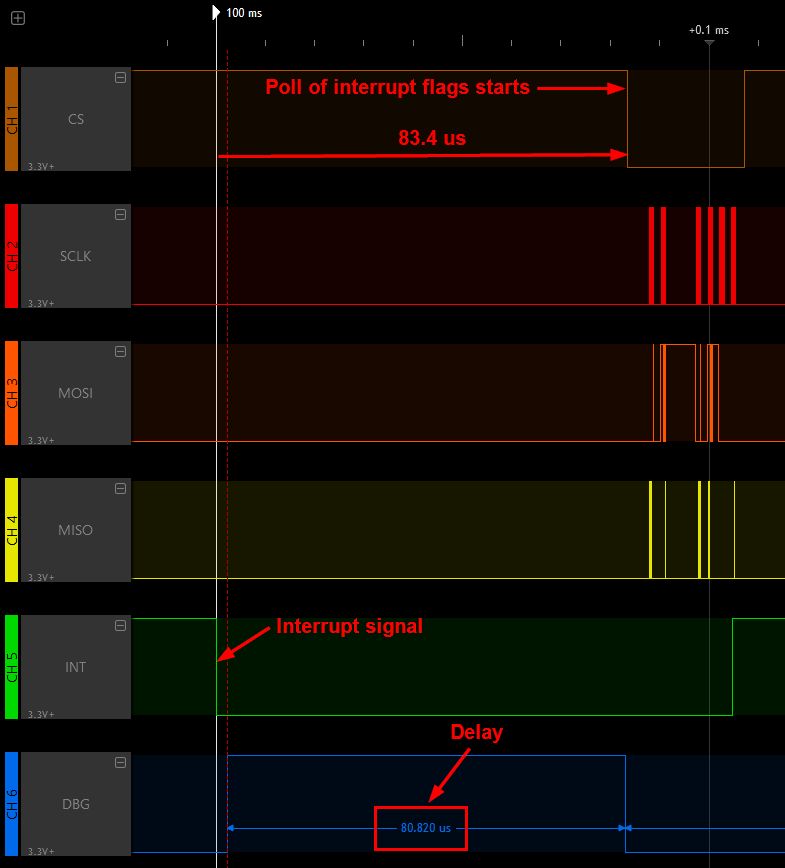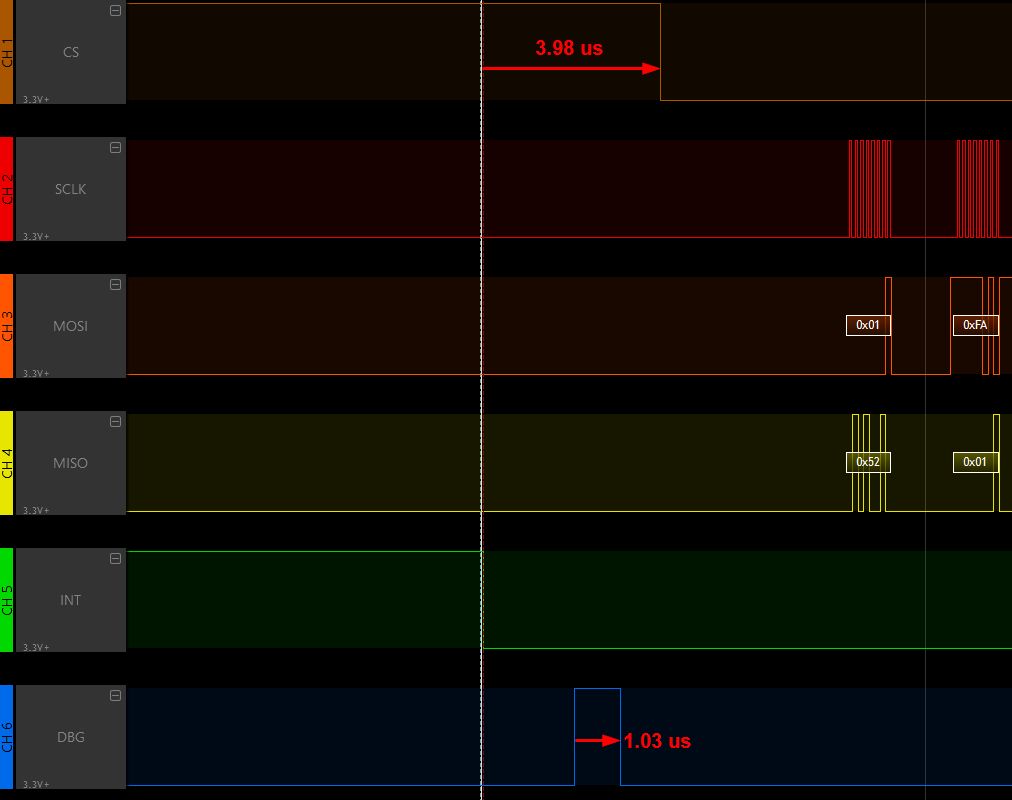Project update 4 of 16
The Joy of Tuning a Race Car
by Pieter CHave you seen the movie Ford v Ferrari? For a balanced view, also see the documentary Shelby American. Interestingly the replica cars used in the movie was built in the same South African city where I grew up (see HERE), but now I’m digressing WAY too much…
If you want to make it really fast, you’ve got to shed dead weight. I recently tried to figure out why the STM32 took so long to read the interrupt flags of an RF transceiver on the SPI bus. I used the vendor library to communicate with their RF transceiver.
Here are the relevant two functions:
#define RF_TX_FIFO_SIZE 128
#define RF_BUF_SIZE RF_TX_FIFO_SIZE
void RF_GPIO_IrqGetStatus(RFIrqs* pxIrqStatus)
{
uint8_t tmp[4];
uint8_t* pIrqPointer = (uint8_t*)pxIrqStatus;
PX_DBG_PIN_HI(); // <- Start timing
/* all the 4 bytes of irq status register is being read */
g_xStatus = RF_ReadRegister(IRQ_STATUS3_ADDR, 4, tmp);
/* Build the IRQ Status word */
for(uint8_t i=0; i<4; i++) {
*pIrqPointer = tmp[3-i];
pIrqPointer++;
}
}
StatusBytes RF_ReadRegister(uint8_t cRegAddress, uint8_t cNbBytes, uint8_t* pcBuffer )
{
uint8_t tx_buff[(2 * RF_BUF_SIZE) - 1]={READ_HEADER,cRegAddress}; // <- Culprit
uint8_t rx_buff[RF_CMD_SIZE];
StatusBytes status;
PX_DBG_PIN_LO(); // <- End timing
RF_ENTER_CRITICAL();
RF_RADIO_SPI_NSS_PIN_LOW();
IO_func.WriteBuffer( tx_buff, rx_buff, 2 );
IO_func.WriteBuffer( tx_buff, pcBuffer, cNbBytes );
RF_RADIO_SPI_NSS_PIN_HIGH();
RF_EXIT_CRITICAL();
((uint8_t*)&status)[1]=rx_buff[0];
((uint8_t*)&status)[0]=rx_buff[1];
return status;
}
I use a spare GPIO pin to measure the time it takes to get into the RF_ReadRegister() function. Here is the measured timing:
I then tried to figure out what caused the long 80.82 us delay. I had to switch to disassembly and single-step:
It turns out that the function allocates a whopping 255 bytes on the stack for tx_buff[] array, initialize the first 2 bytes and clears the rest (253 bytes) using the memset() function. That explains it! See THIS StackOverflow question
Here is the timing after I fixed it:
These are the embedded pro skills that I’m trying to cultivate and the reason why the tutorials start at the deep end of the pool with 01 Flashing an LED in assembler
KEEP CALM and DON’T PANIC :)








